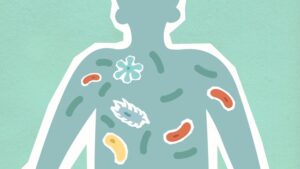Gastroenteritis is one of the most common digestive system illnesses among children, affecting billions of kids worldwide each year, especially those under 5 years old. Severe cases of gastroenteritis can lead to dehydration and electrolyte imbalance due to fluid and electrolyte loss from vomiting and diarrhea.
What are the Symptoms of Gastroenteritis in Children?
Common symptoms include:
- Vomiting
- Diarrhea
- Stomach cramps or pain
- Fever
- Loss of appetite
These symptoms can vary depending on the cause, but vomiting and diarrhea are the most typical, with stomach pain being a frequent issue as well.
What Causes Gastroenteritis in Children?
Gastroenteritis can be caused by several factors, with the most common being:
- Viral Infections: Norovirus and rotavirus are the most frequent viral causes. The virus is typically spread through person-to-person contact, especially in crowded places like daycares or schools. Fecal-oral transmission is a common mode of spreading viral gastroenteritis.
- Bacterial Infections: Bacterial gastroenteritis can result from contact with or consumption of contaminated food, particularly undercooked meat, poultry, eggs, or unpasteurized milk and juice. Contact with infected animals or drinking contaminated water can also cause bacterial infections.
- Parasitic Infections: Parasitic gastroenteritis is often transmitted through contaminated water or fecal-oral routes, which can occur in environments like daycare centers.
How to Treat Gastroenteritis in Children?
- Hydration and Electrolyte Replenishment: The most critical part of treating gastroenteritis is ensuring that the child stays hydrated. Parents should encourage small, frequent sips of water to prevent dehydration. Oral rehydration solutions are also effective for replenishing fluids and electrolytes.
- Antibiotics: In rare cases, if gastroenteritis is caused by a bacterial infection, doctors may prescribe antibiotics based on the diagnosis.
- Probiotics: Taking probiotics shortly after the onset of symptoms may slightly reduce the duration of diarrhea (usually by about one day). However, probiotics cannot prevent severe gastroenteritis or replace the need for hospitalization or IV fluids when necessary.
In most cases, gastroenteritis only requires adequate rest and sufficient hydration to manage symptoms, and most children recover without needing additional medical treatment.













